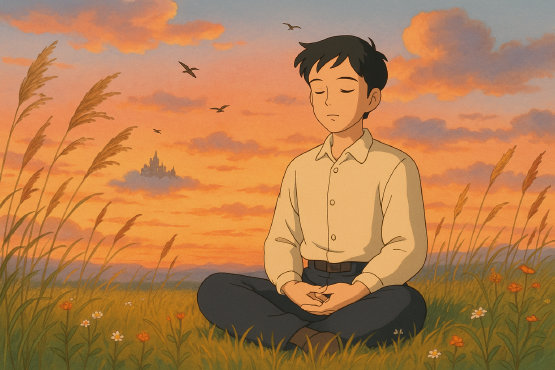Beyond Anger to Freedom — Living as the Master of Emotions
Emotional Changes in Modern Society
Modern society is constantly changing every day, and human relationships are intricately entangled as well. Amidst this confusion, our emotions can waver countless times within a single day. Among these, 'anger' has established itself as the most immediate and powerful emotion. Anger can manifest as an instinct to protect oneself and can also be a cry against suppressed injustice. However, if this anger is not managed, it can become a shackle that binds me. The struggle directed outward disrupts inner peace and ultimately becomes a damaging emotion that harms me.
Reflection on Anger and Emotions
The challenge we face today is not simply to suppress or ignore anger. Rather, it is important to reflect on the message that this emotion carries and to move toward a broader freedom through it. Emotions should not be viewed as foes to be extinguished, but rather as teachers to be understood. Finding a balance between a culture that suppresses emotions and a healthy expression of feelings remains a difficult issue. However, modern psychology and philosophy emphasize the recognition of emotions.
Emotion Regulation from a Cultural Perspective
Japanese culture has sought harmony by hiding emotions rather than expressing them and confining them within. This approach has allowed for temporary peace, but over time it has led to internal imbalances. Modern psychology is revealing that emotions do not disappear simply because they are suppressed. Repressed emotions may eventually become distorted and may return as larger waves at some point. In this way, the Western approach of expressing emotions and the Eastern approach of swallowing them offer contrasting but intersecting insights.
The meaning of anger and how to cope with it
Anger is not just an impulse but a signal for self-protection and a means to achieve justice. What is important is how we face and handle our anger. Rather than denying or suppressing it, we need to understand why it arises and listen to the true voice hidden behind the emotion. Through this process, we can reach a deeper point of awareness beyond our emotions.
Building a Relationship with Emotions
The way of regulating emotions within a cultural context is also a subject of reflection. The methods of expressing emotions and the methods of hiding emotions are different approaches, but what is important is the 'relationship' with emotions. It is necessary to acknowledge the flow of emotions as it is and to ask oneself what meaning that emotion holds. By doing so, we can take a step closer to inner peace without being swayed by others.
Transcendence of Emotions on a Philosophical Level
The transcendence of emotions is not just a technique for controlling feelings, but a questioning of the direction of existence. Nietzsche viewed forgiveness as an expression of strength. He emphasized that the power to move beyond past wounds is the foundation of true freedom. While we may remain in a victim mindset, the choice to transcend this and write a new story is entirely up to us.
The Right to Choose and Lead Emotions
The choice and control over emotions can vary depending on how we handle anger. While anyone can feel anger, whether we let it dominate us or reflect on it and shift in a new direction is up to our will. Emotions should not be something manipulated, but rather something to be understood. A person who can recognize their own emotions and handle them responsibly can lead their life without being swayed by external circumstances.
Practices for Inner Peace
The practice for inner peace is not far away. It includes reflection, meditation, forgiveness, and exercises to strengthen the mind. Focusing on the breath, listening to the inner voice, honestly confronting wounds, and letting them go are all processes that ultimately set us free. Redefining the meaning of life and reconstructing the self beyond anger and victimhood—this can be called true growth and maturity.
The Role of Future Technology and Artificial Intelligence
The technology of the future will enable real-time analysis and regulation of emotions. Artificial intelligence will be able to understand our emotions and assist us in responding more appropriately. However, no matter how sophisticated the technology is, it is only a tool. The essential power ultimately begins with human reflection on understanding oneself and managing emotions.
Understanding and Transcendence of Emotions
Finally, we must declare, 'I do not become angry.' This does not mean suppressing emotions, but rather a declaration to approach the roots of anger, to understand and embrace it, and to become beings capable of transcending that emotion. This is not a sign of weakness but an expression of transcendence.
Journey of Self-Reflection
Right now, begin your journey towards true peace and freedom, moving beyond anger and grievances in your life. This journey starts with a single step, a very small and quiet reflection. And that reflection will become the path for you to reclaim mastery over your life.

Post a Comment